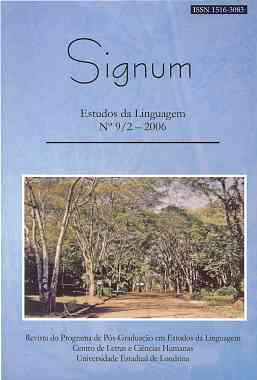Ways of speech and silence in Greek antiquity: notes for public speech genealogy
DOI:
https://doi.org/10.5433/2237-4876.2006v9n2p215Keywords:
Homeric assemblies, “Public speech genealogy”, Discourse analysis, Political discourse.Abstract
Taking some fragments of Iliad and Odyssey that describe the Homeric assemblies, this work aims at discussing the semiologic procedures (both verbal and non-verbal) by which the speaker takes the turn, develops his speech and establishes the silence within his audience. By considering these procedures, this research intends to show some representations of the public speech of this period and to suggest some discourse features that account for its characterization. In this paper, both Homer’s epopees, considered the basis of the occidental thought, are reviewed in order to propose a first sketch of what is called “public speech genealogy”. Where, when and how do the Homeric characters speak and how does their audience react? It is claimed that the comprehension of Homeric representations of public speech can lead to a less intuitive and stigmatized interpretations of political discourse and provide for a better understanding of the contemporary political discourse.
















